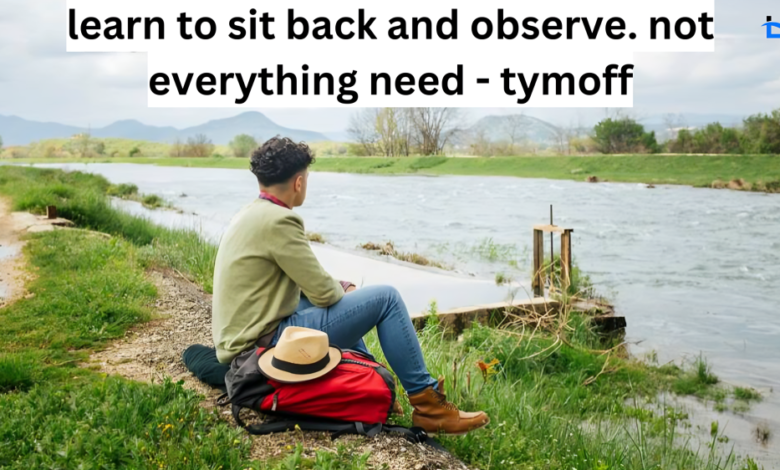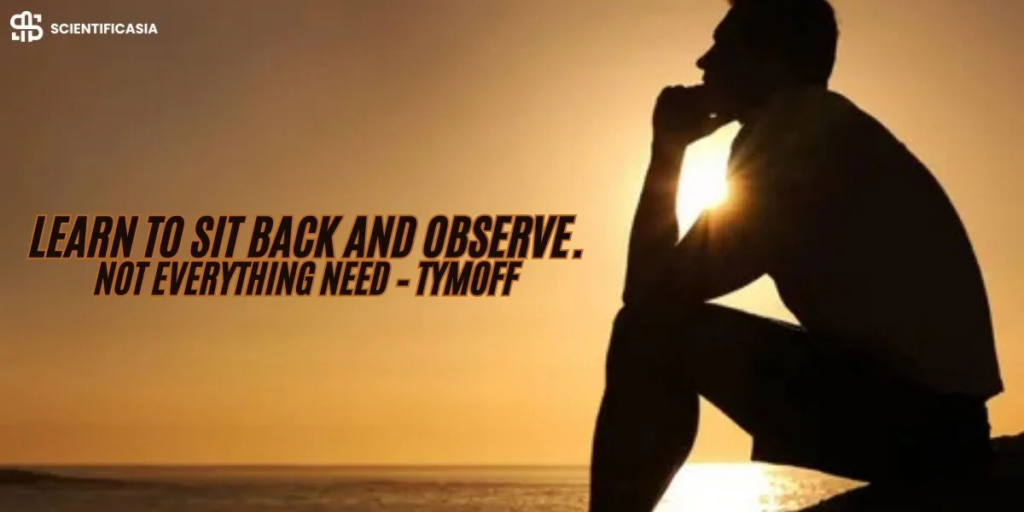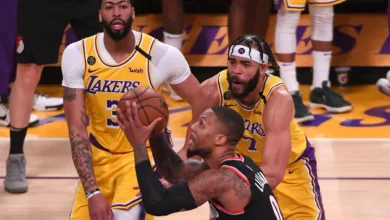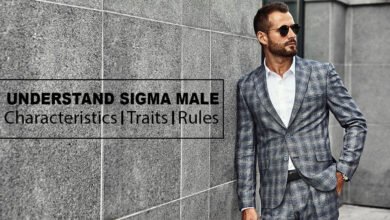learn to sit back and observe. not everything need – tymoff

Introduction: to learn to sit back and observe. not everything need – tymoff
learn to sit back and observe. not everything need – tymoff, and react, there’s immense power in learning to sit back and observe. This principle, often underestimated, is not about passivity but about developing a thoughtful approach to life. Reacting to every situation can drain your energy, judgment, and lead to unnecessary stress. Instead, observing allows you to understand situations better and respond when the learn to sit back and observe. not everything need – tymoff moment truly calls for it.
This article explores the wisdom behind this concept, how it can transform your personal and professional life, and practical steps to incorporate it into your daily routine. By the end, you’ll see that sometimes, the most profound actions start with deliberate inaction.
Why We Feel the Need to React to Everything
The Rise of Reactive Behavior in the Modern World
Modern life bombards us with stimuli—texts, emails, social media notifications, breaking news, and more. This constant influx creates an urgency to respond immediately. Over time, this habit becomes ingrained, and we equate reacting with productivity or learn to sit back and observe. not everything need – tymoff control. However, this cycle often leads to burnout and decision fatigue, as not every situation genuinely requires your immediate input.
The Fear of Missing Out (FOMO)
FOMO is another significant factor driving reactive behavior. We often feel compelled to jump into conversations, debates, or opportunities out of fear that staying silent might make us irrelevant. However, this fear often clouds our judgment, causing us to act impulsively rather than thoughtfully.
The Ego and Its Desire to Control
Many of us feel the need to have the last word or fix every problem as soon as it arises. This is often a manifestation of the ego, which thrives on a sense of learn to sit back and observe. not everything need – tymoff control. Learning to step back challenges this ego-driven need and teaches humility, patience, and wisdom.
The Power of Observation: Why It Matters

Observation as a Tool for Understanding
When you observe without reacting, you gain clarity. Observation allows you to notice patterns, understand motives, and assess situations more accurately. This skill is invaluable in personal relationships, workplaces, and even self-reflection learn to sit back and observe. not everything need – tymoff.
Responding vs. Reacting
The key distinction here is between reacting and responding. Reacting is immediate and often emotional, while responding is thoughtful and measured. For instance, when someone criticizes you, reacting might involve snapping back defensively, whereas responding involves assessing the validity of their point and addressing it constructively, if needed.
Creating Emotional Balance
Observing rather than reacting helps maintain emotional equilibrium. You become less likely to be swayed by fleeting emotions or learn to sit back and observe. not everything need – tymoff external pressures, allowing you to approach challenges with a calm and composed mindset.
The Psychological Benefits of Sitting Back and Observing

Reducing Stress and Anxiety
Constantly reacting keeps your mind in a state of overdrive, which can lead to chronic stress and anxiety. Observing allows you to detach emotionally, learn to sit back and observe. not everything need – tymoff providing the space needed to process events without feeling overwhelmed.
Improved Decision-Making
Decisions made in haste often lead to regret. By taking a step back to observe, you allow yourself time to evaluate all angles of a situation, making decisions that are more informed and aligned with your long-term goals.
Building Empathy and Understanding
When you observe others without jumping to conclusions or reacting impulsively, you start to see things from their perspective. This fosters empathy, learn to sit back and observe. not everything need – tymoff improves communication, and strengthens relationships.
How to Cultivate the Habit of Observing
Practice Mindful Listening
Mindful listening involves giving your full attention to what someone is saying without planning your response while they’re still speaking. This practice helps you truly understand their perspective and reduces the tendency to learn to sit back and observe. not everything need – tymoff react impulsively.
Pause Before Reacting
The simple act of pausing can be transformative. When faced with a triggering situation, take a deep breath and count to ten. This pause gives you the chance to shift from a reactive state to a reflective one.
Engage in Reflective Journaling
Writing down your thoughts and feelings about situations you encounter can help you process them without the need for immediate action. learn to sit back and observe. not everything need – tymoff Journaling allows you to reflect, identify patterns, and understand your triggers better.
Practice Meditation and Mindfulness
Meditation trains your mind to focus on the present moment and detach from impulsive reactions. Even a few minutes a day can significantly improve your ability to observe without getting emotionally entangled.
The Impact on Personal Relationships
Conflict Resolution Without Escalation
In relationships, observing before reacting can prevent conflicts from escalating. For instance, instead of responding to a partner’s criticism with learn to sit back and observe. not everything need – tymoff defensiveness, taking time to understand their point of view can lead to more constructive conversations.
Becoming a Better Listener
Observation enhances your listening skills, making others feel heard and valued. This strengthens trust and deepens your connections with loved ones.
Avoiding Miscommunication
Impulsive reactions often stem from misunderstandings. By sitting back and observing, you can clarify intentions and reduce the likelihood of learn to sit back and observe. not everything need – tymoff miscommunication.
Applying This Principle in the Workplace
Managing Workplace Conflicts
Office dynamics often involve misunderstandings, differing opinions, and occasional conflicts. Reacting impulsively can strain professional relationships, whereas observing and responding thoughtfully can foster respect and learn to sit back and observe. not everything need – tymoff collaboration.
Improving Leadership Skills
Great leaders are often excellent observers. They assess situations, understand team dynamics, and make decisions based on careful observation rather than knee-jerk reactions. Cultivating this skill can make you a more effective and respected leader.
Enhancing Creativity and Problem-Solving
Observation fosters creativity by learn to sit back and observe. not everything need – tymoff allowing you to approach problems from different angles. By stepping back, you can identify innovative solutions that might not be apparent when you’re caught in the heat of the moment.
Challenges You May Face While Learning to Observe
Breaking Old Habits
Shifting from a reactive mindset to an observational one takes time and effort. You might find yourself slipping back into old patterns, but consistency and self-awareness will help you stay on track.
Dealing with External Pressures
The world often expects immediate responses, especially in professional settings. Learning to balance observation with learn to sit back and observe. not everything need – tymoff timely action is crucial to overcoming this challenge.
Overcoming Inner Restlessness
Sitting back and observing can feel uncomfortable initially, as it requires patience and restraint. Practicing mindfulness and focusing on the long-term benefits can help you overcome this restlessness.
Conclusion: The Quiet Strength of Observation
Learning to sit back and observe isn’t about being indifferent or detached—it’s about cultivating wisdom, emotional intelligence, learn to sit back and observe. not everything need – tymoff and intentionality. This practice can transform your relationships, decision-making, and overall mental well-being.
Remember, not everything in life demands your immediate reaction. Sometimes, the best response is no response at all—just quiet observation, understanding, and a thoughtful approach when the moment truly requires it. By learn to sit back and observe. not everything need – tymoff embracing this principle, you’ll discover a sense of peace and control that reactive behavior can never provide.


